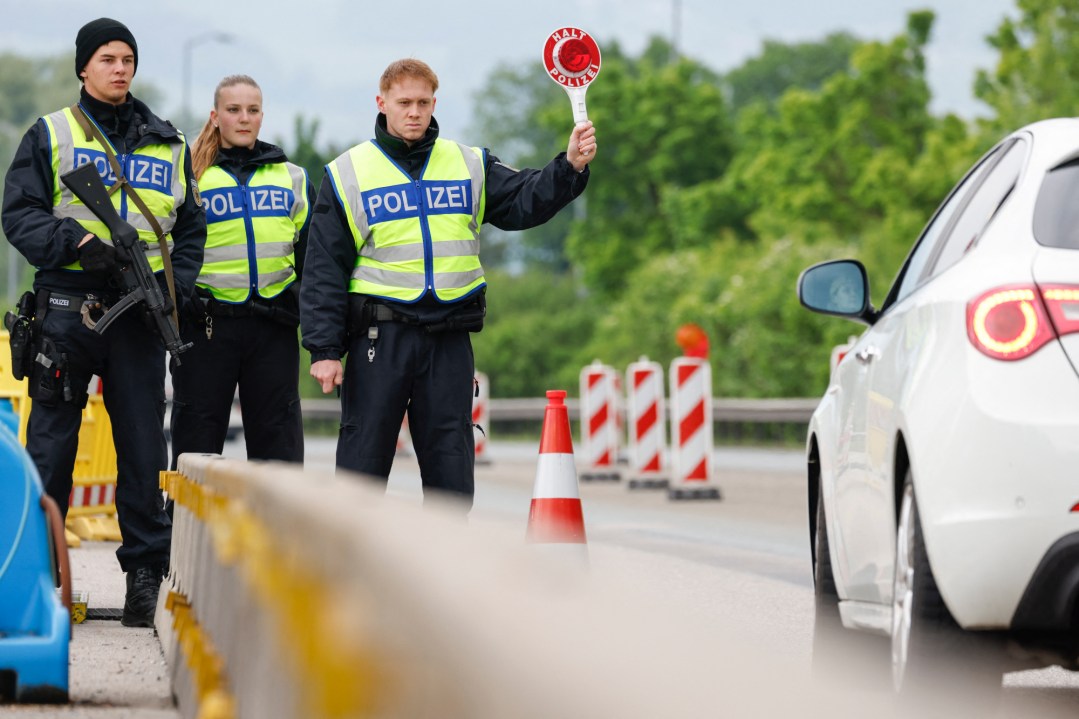Germany’s new interior minister, Alexander Dobrint of the Christian Social Union (CSU), has made quite a stir with his proposals to end family reunification and ‘turbo citizenship’, which allowed people to become citizens after as little as three years in Germany. However, as usual in Germany, under the outrage is a more prosaic reality. Only those without official refugee status will be barred from bringing family members to Germany, and it won’t even apply to those who have already come to Germany to claim asylum.
It’s a strange irony that freedom of movement across Europe could end up being curtailed because of the EU’s collective failure to tackle migration. You can only have weak internal borders if you have strong external ones
Since 2018, up to 12,000 people a year have come to Germany under family reunification. The new measures seem unlikely to reduce those numbers much. What is more, in 2024 there were 350,000 people in Germany who hadn’t yet been given full refugee status but were still eligible for family reunification. Most came from Syria and Afghanistan, both countries which have been over-represented when it comes to migrant terror attacks in Germany. It didn’t help that the Foreign Office, led by the Green party’s Annalena Baerbock, was plausibly accused by Der Spiegel of having ‘legally smuggled’ thousands of Afghans to Germany. Despite having false documents and a lack of verification, many were flown on government flights from Pakistan to Germany.
The new measures also seek to save €12 million, by cutting the cost for German language integration courses. That might please a few burghers but it’s awfully small when you consider that the yearly cost of refugees in 2023 was €48.2 billion. It’s currently estimated that there are 3.48 million refugees in Germany, around 4 per cent of the population, or one in every 25 people. That has produced a political crisis in Germany, with the hard-right Alternative for Germany (AfD) in the lead in some polls as a result.
Under political pressure, the Christian Democratic Union (CDU) which leads the current coalition government, felt the need to act. The most visible sign has been the introduction of pushbacks at the border. It’s certainly impressive to see German police stationed there for once, but the reality is less impressive. Between 8 and 14 May the authorities pushed back 32 people but allowed in 1,535. The issue is that there are various exemptions to the push backs, including for those who declare themselves children, which in effect means that most people can still enter the country.
Nonetheless, thousands have still been pushed back, with Poland and Switzerland complaining that it means more asylum seekers being dumped on them. Polish Prime Minister Donald Tusk has announced that Poland will use EU emergency powers to close their border, while the Swiss called it ‘unacceptable and contrary to European law’. It’s a strange irony that freedom of movement across Europe, one of the proud achievements of the European Union, could end up being curtailed because of the EU’s collective failure to tackle migration. You can only have weak internal borders if you have strong external ones.
Angela Merkel, still in denial about her own role in this migration crisis, briefly left an event in Ulm to complain to the media about the new Chancellor, her former rival, Friedrich Merz. She said, ‘I don’t believe we can conclusively combat illegal migration at the German-Austrian or German-Polish border. Instead, I have always advocated for European solutions’. The problem is that there are few European solutions forthcoming. The much-heralded Migration Pact hasn’t solved the issue and, when several EU nations recently called for the European Convention on Human Rights (ECHR) to be curtailed on migration issues, the EU had nothing to say.
So all that remains are Germany’s current reforms – minor fixes that fail to tackle the root issues. Nonetheless, the German Blob has been out in full force to decry these measures. More than 30 groups and NGOs, the Green party and the German Protestant and Catholic Churches opposed them, calling them ‘unethical’ and warning that they would make integration harder. These same groups aren’t worried about whether 29 per cent of all German school pupils having a migrant background might lead to integration issues. Many parents, including those with a migrant background themselves, already complain that their children can’t learn German properly in school at the moment.
All that is before you get to the well-known problems around crime and terrorism linked to migration. It is good that the German government is turning in the right direction but their plans are far too modest to tackle the scale of the issues now permeating society. If they are only trying to look tough, in order to win back votes from the AfD, then they will soon be found out and lose even more trust with the German public. Actual solutions will require radical reform of Germany’s asylum laws, challenging international laws and courts like the ECHR, and forcing the EU to correct course.








Comments